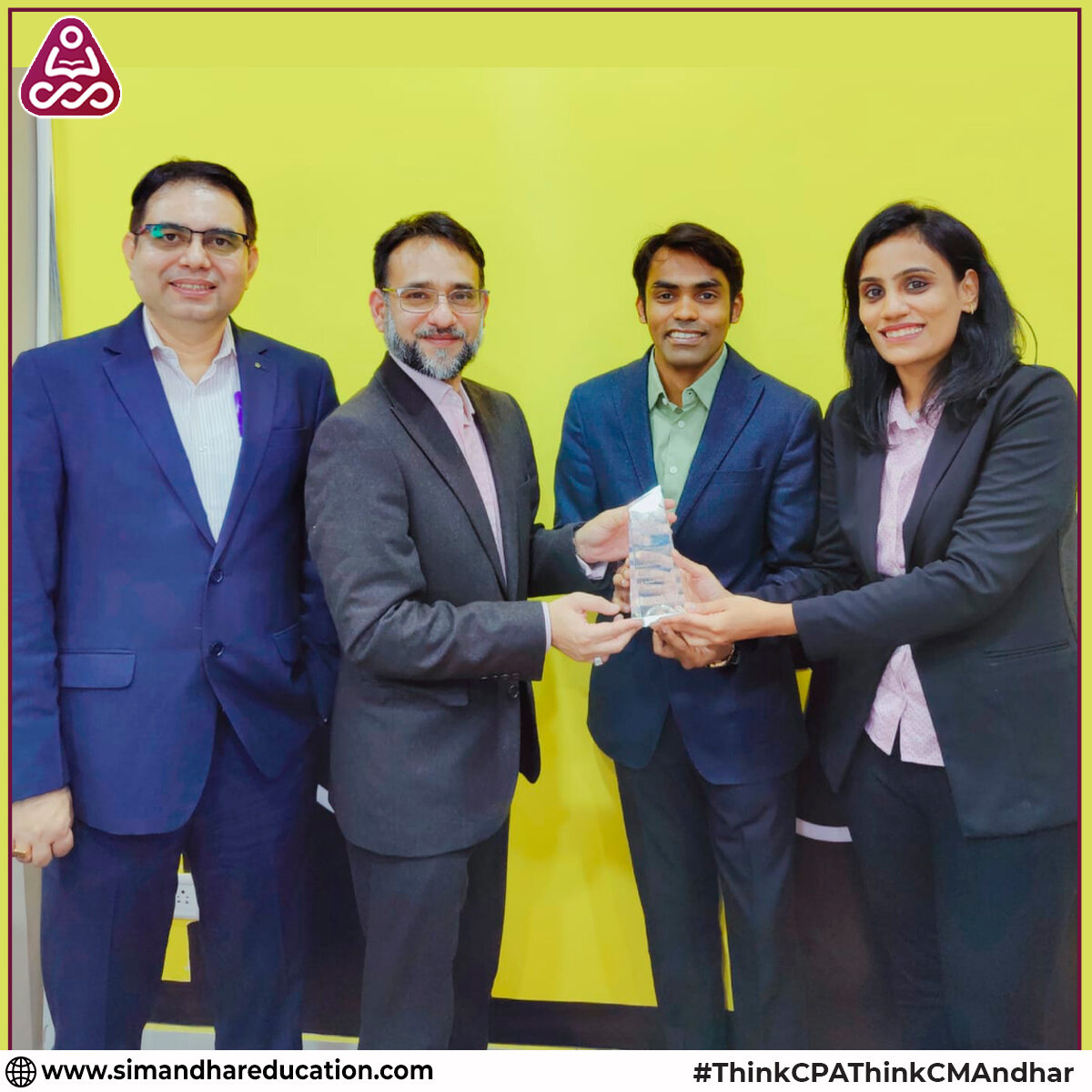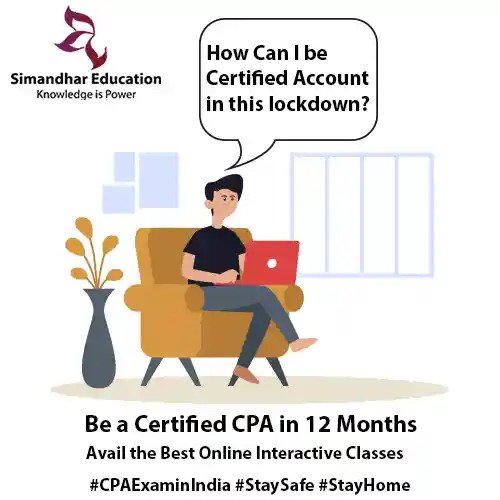Free Becker 15 Days Trial
US Certified Public Accountant Exam
(CPA Course)
Study material provided by Becker, Live Classes by Simandhar
Certified Public Accountant (CPA) is recognized as a high standard of competence in the Accounting field. The CPA exam is governed by the world's largest accounting body called AICPA (American Institute of Certified Public Accountants). The CPA course includes accounting topics and other related topics like taxation, analytics, evaluation, auditing, financial management, ethics, and regulatory frameworks
Download Free Prospectus
Study CPA with Simandhar Education
(The Leader in Accounting Courses)
- 3 Times CPA Watt Sells Award Winning Institute
- Best CPA Institute (Awarded by Becker)
- International Recognition
- Career opportunities at Big 4 & MNCs
- Upskill in US GAAP & Business Laws
- Flexible & Easy to Pass

Pass all 4 CPA exams within a year
- Auditing & Attestation
- Business Environment & Concepts
- Financial Accounting & Reporting
- Regulation













